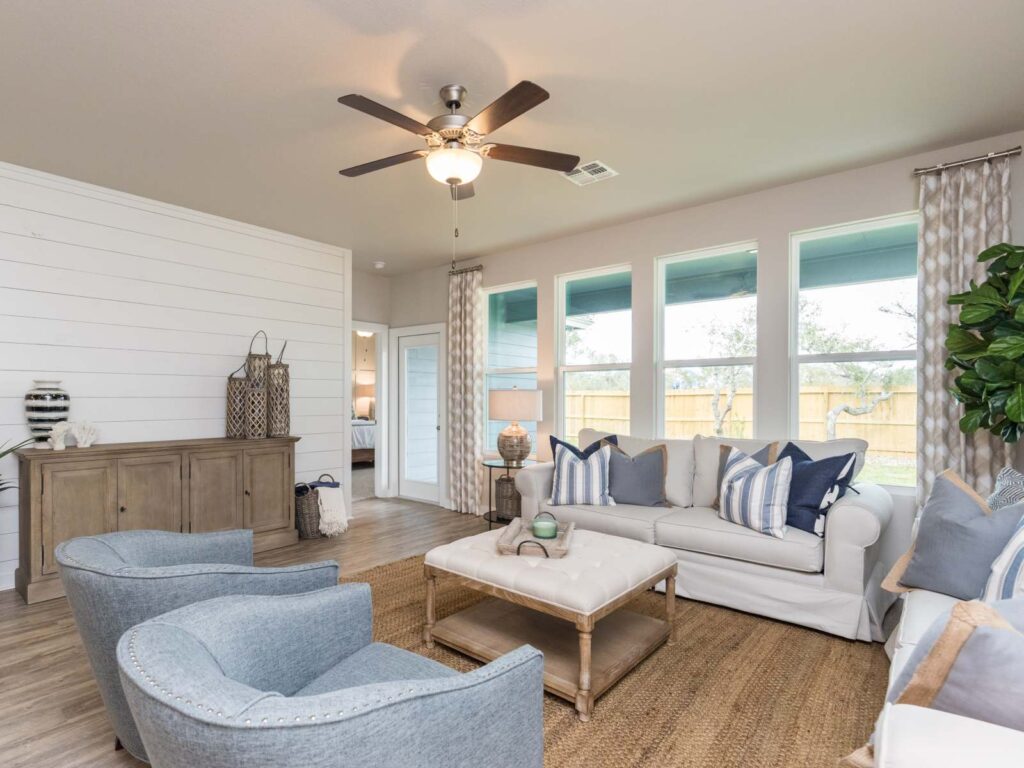Buying a Home vs. Renting: Learn the Pros and Cons

Thinking of buying a house for sale in Corpus Christi? Purchasing a home can be a wonderful way to build long-term wealth.
When it comes to buying vs. renting a home, there is no clear right or wrong answer. It all largely depends on a person’s lifestyle, finances, and a few other factors.
The pros and cons of buying a home vs. renting
The advantages and disadvantages of renting are typically the opposite of those for purchasing. On the upside, the renter has the flexibility to move more easily and the landlord takes care of maintenance and repairs. However, a renter has to abide by the landlord’s rules and prices, and he or she does not get the financial advantages of deducting taxes or building equity.
Tax advantages
Homeowner: Is eligible for certain tax deductions on property taxes, paid interest, and home enhancements when you file taxes every year. Tax-deductible expenses lessen a homeowner’s taxable income, which means that he or she will shell out less in income tax. A typical homeowner can typically deduct property taxes, interest, and more on taxes.
Renter: Normally, a renter doesn’t pay property taxes, although it is possible that the landlord may require you to do so as part of the lease.
Building equity
Homeowner: The value of the home increases as you pay down your mortgage. In the process, you gain equity in the house. You have the option of borrowing against the equity in order to finance your other goals. You may opt to sell the house in the future and use the profit as a down payment on your next house or keep the money.
Renter: Since you do not have home ownership, you do not build equity. Equity refers to the rise in a home’s value over time, and it will naturally go to the landlord or the person who owns the home.
Customize your home
Homeowner: When you are the homeowner, you always have the power to update your living space.
Renter: When you are renting, there’s always the possibility that your landlord will not approve of the changes that you want in the home.
Lifestyle
Homeowner: If you are generally all set to settle and you can see yourself living in the area for at least five years and have a stable job near your home, then owning a home is a great fit for you.
Renter: If you lack job security, have plans to live elsewhere, and are not ready to stay in one area for at least five years, then renting is the most logical choice for you.
Peace of mind
Homeowner: Your home cannot be sold without your permission. If you gain comfort in this thought and this resonates strongly with you, then homeownership is calling.
Renter: A typical renter trades the peace of mind that goes with homeownership with the flexibility that goes with being able to move to another area. If that kind of flexibility is your priority, then for now, renting may be a better option.
Finances
Homeowner: In order to be a homeowner, a person has to have plenty of financial leverage. This means that your finances need to be in order – you need good credit, that downpayment, stable employment, and the financial ability to make home payments in the future.
Renter: Renters do not have to meet strict financial standards; however, they also need good credit, the amount for the deposit, and the ability to make timely payments for the rent.
Is renting for you?
There is one major benefit to renting a home: your landlord is solely responsible for repairs and maintenance, insurance, HOA fees, property taxes, and other costs. Unexpected emergencies like roof replacement, a new gas line, or a ruptured water heater are not your responsibility.
Conversely, a renter is limited when it comes to the changes they can make to a place. Any home enhancements that are approved will ultimately benefit the landlord when the renter moves out.
Although financial experts are expecting a slowdown, one of the renters’ biggest concerns is the increasing costs of rent.
Is being a homeowner for you?
Homeownership is just that – you own a home and are free to do as you please with it, including upgrading, remodelling, and refreshing to suit your needs. When you finally decide to sell the home, you will get more than what you initially paid for in the form of equity, since typically, real estate properties appreciate in value over time.
Owning and renting are different in most aspects. The costs and rewards are not the same, and the responsibilities of homeowners are greatly different from renters. Goals, lifestyles, and needs vary.
These differences are oftentimes a reflection of the choice to buy or rent, and at times, a reflection of the motives that choice is made. In any case, the more you are aware of the differences between buying vs. renting a home, the easier making a decision will be.
Sources:
“Renting vs. Owning a Home: What’s the Difference?” Investopedia, https://www.investopedia.com/articles/personal-finance/083115/renting-vs-owning-home-pros-and-cons.asp
“Renting vs. buying a home: Which is right for you?” Bankrate, https://www.bankrate.com/real-estate/renting-vs-buying-a-home/
“Buying vs. Renting a Home,” Diffen, https://www.diffen.com/difference/Buying_A_Home_vs_Renting_A_Home“Should I Rent or Buy? Pros & Cons of Both Scenarios,” MoneyGeek, https://www.moneygeek.com/mortgage/resources/rent-vs-buy-guide/
